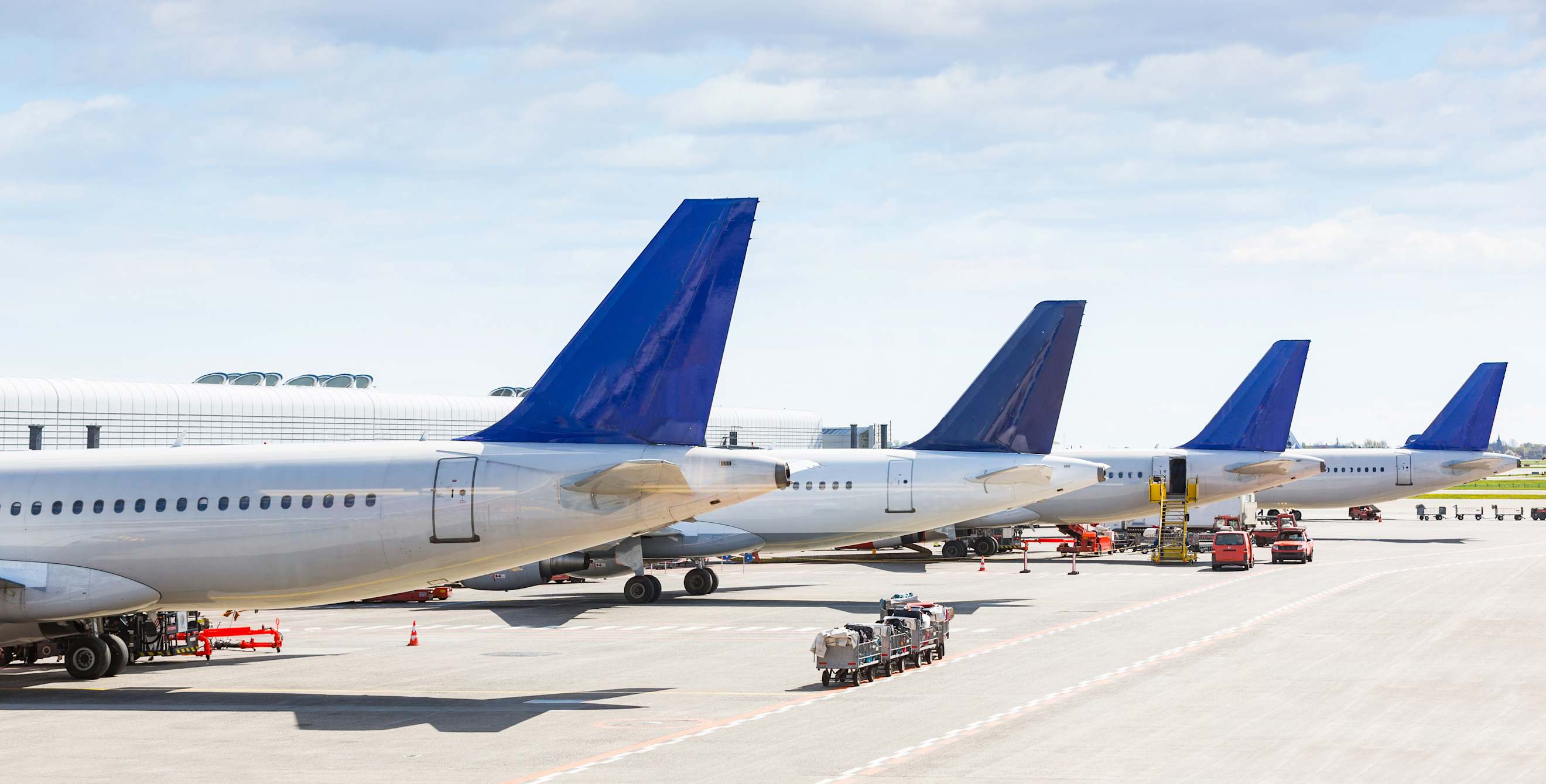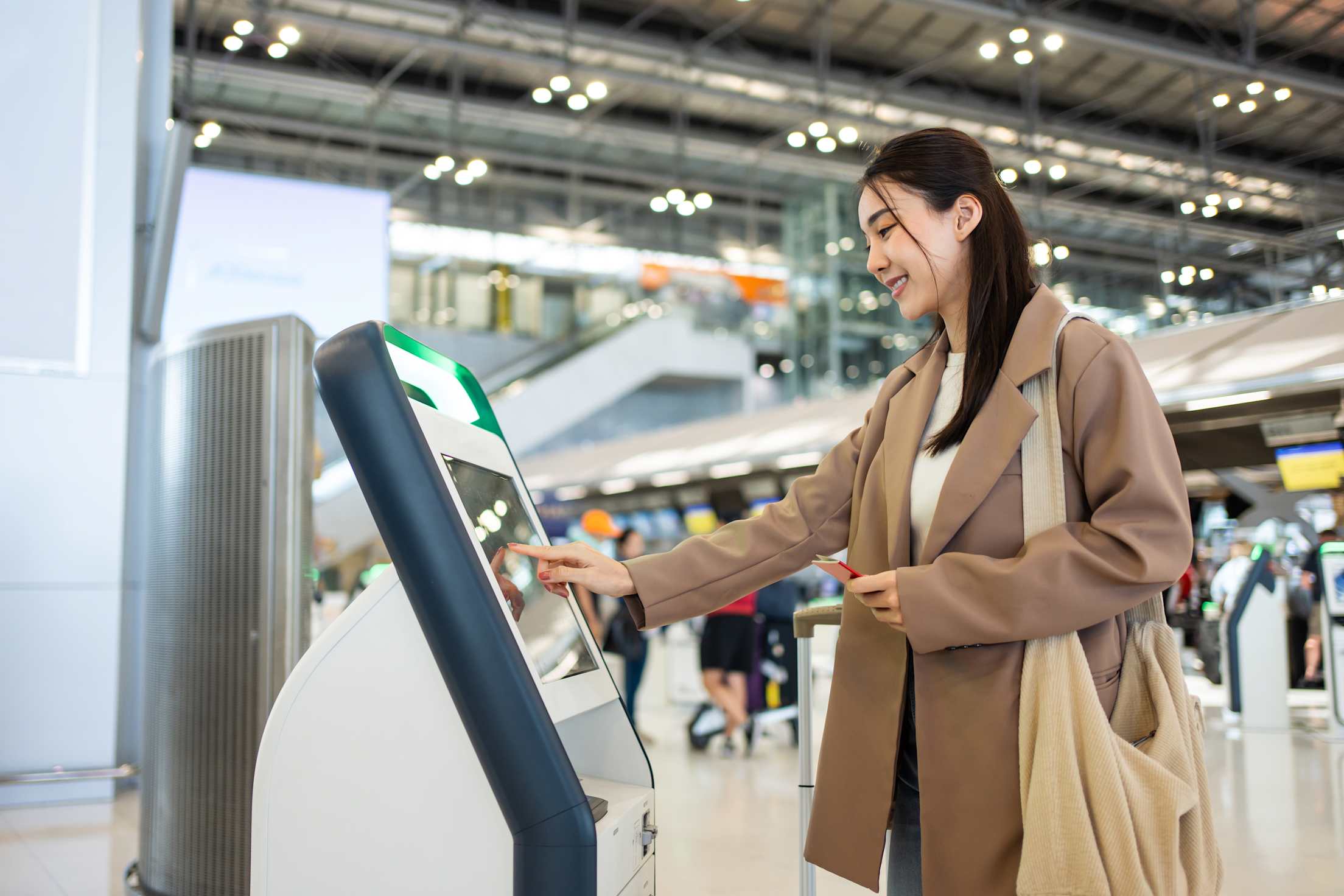
How to Avoid Flight Delays
Travel smoothly with these booking tips, tech hacks, and smart safeguards.

As of May, nearly 20 percent of flights in 2024 were delayed, according to the U.S. Bureau of Transportation Statistics. Clearly, there’s no way to avoid factors like mechanical problems or superstorms. But savvy travelers can employ numerous strategies to minimize the risk of a postponed flight, while preventing fiascos such as missed connections and lost luggage.
Book smart.
On popular travel days, typically Fridays and Sundays, airports can get so busy that planes line up on the runways waiting to take off, often preventing other planes from landing. The delays can domino as the day goes on, because once a plane is late, it’ll be late taking off from its next destination. For these reasons, experts recommend flying on less hectic days such as Tuesdays, Wednesdays, and Saturdays. As an added bonus, it’s usually easier to snag deals on these days.
It’s also wise to take the first flight of the day. Since nighttime domestic flights aren’t nearly as common as daytime flights, it’s likely your 6 a.m. plane will have been parked (and, if necessary, repaired) overnight, and will be ready for you to board bright and early. And if that dawn flight does get postponed or canceled, you’ll have more alternatives to choose from than if you were traveling in the evening. If taking the earliest flight would be a bit too painful or logistically difficult, the next best option is to take another morning flight.
In addition, book a nonstop flight if possible. Since about one in five flights gets delayed these days, your odds of encountering backups increase when you take two (or more) flights. If a connection is unavoidable, many experts now recommend allowing two hours or more to change planes domestically, and three-plus hours if you’re switching planes internationally.
When you’re choosing which route to take, anticipate potential problems in the layover airport. For example, if you’re traveling in winter and you have the option to change planes in Detroit or in Atlanta, you’re less likely to get held up by a snowstorm in Georgia. But in summer, when searing heat can ground flights, it might be smarter to route through, say, Denver than Phoenix. The busyness of an airport and its on-time track record are also important variables to consider.
Strategize with tech.
Several sites can help you choose the most punctual airlines, airports, and flights around the globe. OAG Aviation publishes an annual review of major airlines’ and airports’ on-time performance. In 2023, various Asian and Latin American airlines dominated the top scores. Only one U.S. carrier, Delta, cracked the top 20; the next best domestic airlines were Alaska, United, and American. Some of the timeliest U.S. airports included Salt Lake City, Boise, Tucson, Detroit, and Minneapolis.
Meanwhile, the website and app FlightAware tells you the actual departure and arrival times for specific flights during the previous three months. By looking at all the options for your desired route, you can choose the flight that most consistently arrives on schedule.

Make “early” your mantra.
With so many delays, staffing shortages, and strikes impacting travel these days, more and more experts recommend traveling to your destination a day or more before you need to be there. While this might mean shelling out extra cash on a hotel, the payoff in some cases could be huge. The internet is full of horror stories of people missing weddings, cruise departures, or conferences because their flights were delayed or canceled. Arriving the day before you need to be somewhere helps prevent these disasters and gives you more time to recover from jet lag and travel fatigue so you’ll be better able to enjoy your vacation or impress your colleagues with your presentation.
Experts also encourage people to arrive at the airport at least two hours early for domestic flights and three hours early for international travel. Yes, this often means you’ll spend hours listening to audiobooks and doing yoga poses at your gate. But if you encounter a stampede at security, arriving extra early can mean you make your flight—barely. Also keep in mind that if you cut it too close, you might board the plane in time, but your luggage won’t. If TSA agents have less than an hour to screen your check-in bags, they may place them on a later flight.
Let AAA help.
AAA travel agents can help Members find the best flight connections and avoid potential delay-causing hazards like traveling during the rainy season or running into an airline strike. If you do experience a delay or cancellation, you can call your AAA agent for help reserving an alternative flight, finding new accommodation, rearranging your schedule, and more.
Note that your airline is responsible for rescheduling you if your flight is severely delayed or canceled. However, airlines have been known to rebook passengers on routes with absurd connections or flights that depart several days later. So, it’s wise to have a travel agent in your corner who can leverage their expertise to help everything go as smoothly as possible.
“The longer you wait in line or on hold on the phone with the airline, available space is disappearing,” says Paula Twidale, senior vice president of AAA Travel. “Your travel agent may be able to obtain the space quicker on your behalf.”
In addition, AAA Plus and AAA Premier Members automatically receive worldwide trip interruption coverage on trips of 50 miles or more, plus international coverage for baggage that is lost, damaged, or stolen. Members can call a 24/7 helpline for travel emergencies. Within the U.S. and Canada, you call toll-free, 866-456-3106; outside those countries, you can call collect at 804-673-3390.
Get more out of your vacation: Book through AAA Travel for exclusive Member benefits.